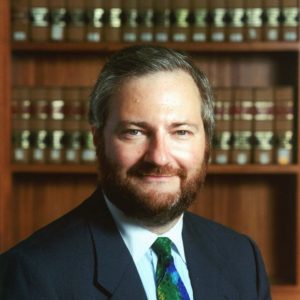CURRENT MONTH (November 2021)
Ethics and Professional Responsibility
Scam Savviness as a Metric of Attorney Competence and Diligence
By Keith R. Fisher
Does anyone use checks anymore? Despite the proliferation of multiple electronic and internet-based consumer and commercial payment systems, the answer is yes. Checks can provide a useful paper trail to establish that payment for something was made. In some countries outside the United States, checks frequently remain the payment system of choice. Personal or company checks are good but occasionally can bounce, so what is often regarded as a commercially preferable “guarantee” of payment are cashier’s checks — items drawn directly on a financial institution’s funds rather than on the obligor’s own account at the financial institution.
Even with bank checks, however, scams are possible. Awareness of such scams has now been identified as part of a lawyer’s ethical duty of competence — at least in North Carolina. Here are the facts as related, seriatim, by a recent North Carolina ethics opinion:
[Issue 1]: Client contacted Lawyer seeking to collect debt from a third party. Client’s communication with Lawyer was unsolicited – Lawyer does not advertise for his practice, and Lawyer had not previously solicited Client’s business. Client provided Lawyer with documentation supporting Client’s claim. Lawyer made preliminary investigation and verified the existence and address of third party. Lawyer contracted with Client to file a lawsuit against third party for the amount owed to Client. A few days after Lawyer sent third party a letter introducing himself as Client’s representative, third party contacted Lawyer stating that he wished to pay the amount owed to Client without the need for litigation, and that third party would be back in touch to make payment arrangements. Without further communication with third party, Lawyer subsequently received a cashier’s check from third party drawn on an out-of-country bank. The cashier’s check was dated prior to third party’s earlier conversation with Lawyer, and third party did not mention the cashier’s check to Lawyer. Third party’s note also stated that he would pay the remainder of debt owed to Client within weeks. Lawyer did no further investigation of third party and did not investigate the authenticity of the foreign bank cashier’s check.
Did Lawyer violate the Rules of Professional Conduct by not investigating the authenticity of the foreign bank cashier’s check?
* * * *
[Issue 2]: Lawyer deposited the cashier’s check into his firm’s trust account. Lawyer notified Client of Lawyer’s receipt of payment from third party. Client directed Lawyer to promptly deduct 20% of the cashier’s check for Lawyer’s fee and to disburse the rest of the money via two disbursements: one to an account in another state and the remainder to an account in a different country. The day after Lawyer deposited the cashier’s check into his trust account, Lawyer called his bank and was informed that the funds from the cashier’s check were available. Without clarifying what available means, Lawyer then proceeded to make the disbursements from his trust account per Client’s direction.
Subsequently, the foreign bank upon which third party’s cashier’s check was drawn became suspicious and determined that the cashier’s check was counterfeit. Lawyer was unable to recall and recover the trust account disbursements made to Client’s accounts. Lawyer then replenished the disbursed funds, including his fee, to his trust account using funds from his operating account. Lawyer reported the incident to the State Bar’s Trust Account Compliance Counsel, expressing remorse and stating that his reliance on the counterfeit cashier’s check was an unintentional mistake.
Did Lawyer violate the Rules of Professional Conduct by depositing the check into his trust account and making the disbursements as directed by Client from the trust account?
This lawyer appears to have been the victim of a coordinated, counterfeit check scam, in which “Client” and “third party” — the potential defendant in a collection action — were in cahoots. According to the opinion, this type of scam has victimized numerous lawyers and law firms throughout the United States, and various state and federal agencies have issued warning bulletins, as have certain malpractice insurance carriers and bar publications.
On Issue 1, the opinion faults the lawyer in question both for his failure to know about these scams and for his failure, in spite of “red flags” he should have noticed, to investigate the check he received from third party. This, the opinion concluded, violated North Carolina Rules of Professional Conduct 1.1 (competence — which is not identical to ABA Model Rule 1.1) and 1.3 (diligence — which is identical to Model Rule 1.3).
What were these “red flags”? Reasonable lawyers might disagree about applying this characterization to some of these scenarios in isolation, but taken together they are what Sherlock Holmes would have called “suggestive.” According to the North Carolina State Bar, they were (1) the unsolicited request for representation; (2) the willingness of the purported defendant to quickly resolve the dispute without much effort from Lawyer; (3) the cashier’s check drawn on a foreign bank; and (4) the cashier’s check being dated prior to Lawyer’s conversation with the purported defendant.
Other suspicious circumstances not highlighted in the opinion but present in this scenario might be (A) the seeming lack of any need for the services of an attorney, and (B) the disproportionate amount of fees earned (here 20% of the recovery) for little or no work.
The ethics opinion concluded that:
- Lawyer’s failure to recognize the scam despite the volume of information directed and available to lawyers on check scams displayed inadequate competence in violation of Rule 1.1.
- The suspicious circumstances should have caused Lawyer to investigate the legitimacy of the cashier’s check (e.g., by contacting the issuing bank); failure to do so violated Rule 1.3’s requirement of diligence. Lawyer could have accomplished this by contacting the bank that issued the cashier’s check to confirm authenticity, or Lawyer could have informed Client of his concerns and waited to see that the cashier’s check was in fact honored and accepted by the issuing bank.
The focus on Rules 1.1 and 1.3 is a significant warning shot across the bow of all lawyers involved in commercial transactions, as it could easily be adopted by other states, including disciplinary authorities. In that regard, note that Comment [8] to Model Rule 1.1 says that “a lawyer should keep abreast of changes in the law and its practice, including the benefits and risks associated with relevant technology.” Falling for a counterfeit check internet scam fails — at least in North Carolina — to adhere to that standard.
Finally, Issue 2 focused on lawyers’ and law firms’ obligations to protect client funds in their trust accounts. In his haste to collect his fee and remit the balance of third party’s payment to Client, Lawyer actually disbursed other clients’ funds from his trust account because the check deposited was counterfeit and never cleared. To his credit, Lawyer self-reported his mistake and reimbursed the trust account out of his own funds. Nevertheless, the opinion concluded that Lawyer’s disbursement of his other clients’ funds from his trust account without their permission for the benefit of someone else constituted a misappropriation of entrusted client funds in violation of various provisions of N.C. Rule 1.15 (safekeeping property).
This conclusion seems a bit harsh, at least when viewed through the lens of Model Rule 1.15(d), which requires that a lawyer “promptly deliver to the client or third person any funds or other property that the client or third person is entitled to receive . . ..” Lawyer here did that, perhaps too promptly. The word “promptly” is not defined in the Model Rules; neither is “funds.” The object lesson here is to consult any guidance from one’s own state bar on the meaning of its version of Rule 1.15 and ascertain whether it would be permissible to interpret “funds” to refer only to collected funds and “promptly” as allowing time for a check to clear before making disbursement to a client.





